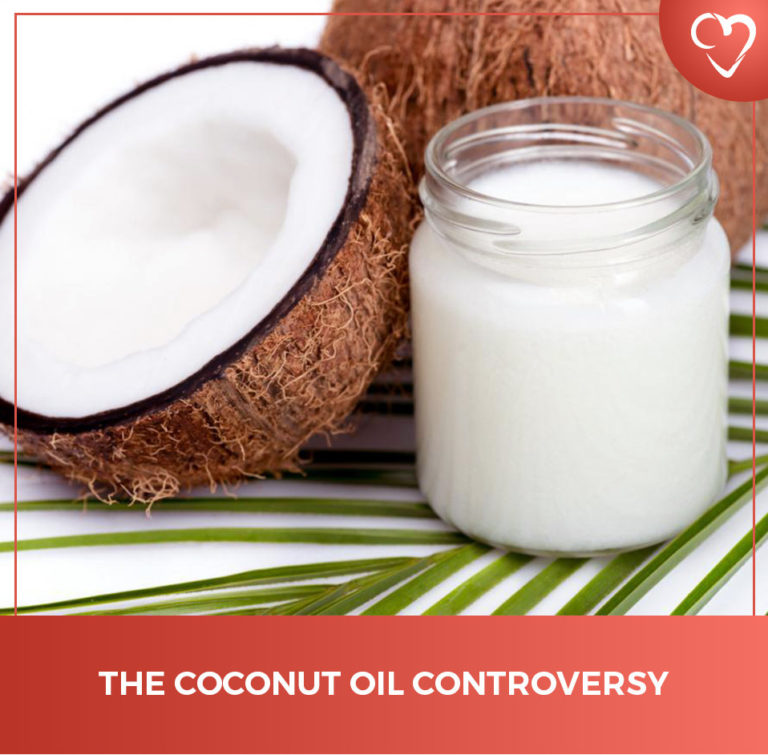
If you pick up any health magazine or cruise the aisle of a health food store, it’s easy to see that coconut oil is the star “healthy” oil of the moment. It’s become trendy for its supposed benefits and is recommended in both the paleo and ketogenic diets, but a feature out in Harvard’s School of Public Health’s publication The Nutrition Source, reports that despite the touted health benefits of coconut oil, it’s not as healthy as consumers are being led to believe. It’s actually loaded with saturated fat. Yup: 80-90 percent, hence why it’s solid when at room temperature, and coconut oil also has trace amounts of of monounsaturated and polysaturated fats. The supposed health benefits of coconut oil that scream out from supermarket labels are all pulled from one study that looked solely at coconut oil made of 100 percent medium-chain triglycerides or MCTs. The problem with that? Those supermarket coconut oils — while they go by the same name — aren’t composed of MCTs but of lauric acid. The body absorbs MCTs quickly, but lauric acid? Not so much. So the health benefits of that MCTs oil just don’t apply. The authors of a literature review on 21 different coconut products concluded that coconut oil should not be held up as a “heart-healthy” food, because of its effects on raising cholesterol were comparable to other saturated fats, including palm oil and — uh oh — beef fat. The American Heart Association even recommends against the use of coconut oil. In 2017, they released a scientific advisory suggesting that those with or at risk for heart disease have no more than 6 percent of their diet be comprised of saturated fats.